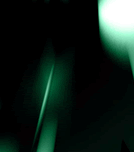"A" or Approaching technology via Critel
 |
 |
 |
|||||
 |
|||||||
 |
 |
||||||
 |
 |
||||||
 |
 |
||||||
Materialist critiques of technology so essential to Critel and to our study of MOOCs were, in turn, influenced by the early constructivist technologies studies and the feminist critiques of science and technology. The former developed into critical technology studies best represented by Andrew Feenburg’s highly influential 1991 work Critical Theory of Technology, the book that launched and has since defined the field of critical technology studies. The other strand, that of feminist critiques, started with early work by scholars like Judy Wajcman and coalesced in Sandra Harding and Donna Haraway’s standpoint theory derived from concepts of “feminist epistemologies” and “situated knowledge,” or knowledge that is partial, yet confidently possible (Hocks). Critel’s approach invokes these kinds of critical technology studies and feminist critiques, at least implicitly. But Critel contributes new insights into how these cycles have operated within our constructions of “participation” in the scholarship and practices of rhetoric and composition.
Thus, with the emergence of MOOCs, a new ERA begins in which we cannot help but participate, because in a truly materialist paradigm one can never escape social relations and structures of power. We are involuntarily enrolled in this schooling machine. However, as Critel shows us, we can still point to strategic situated practice, we can expose and critique, and we can discover new situated knowledge.
[Go to Introduction to select another node]